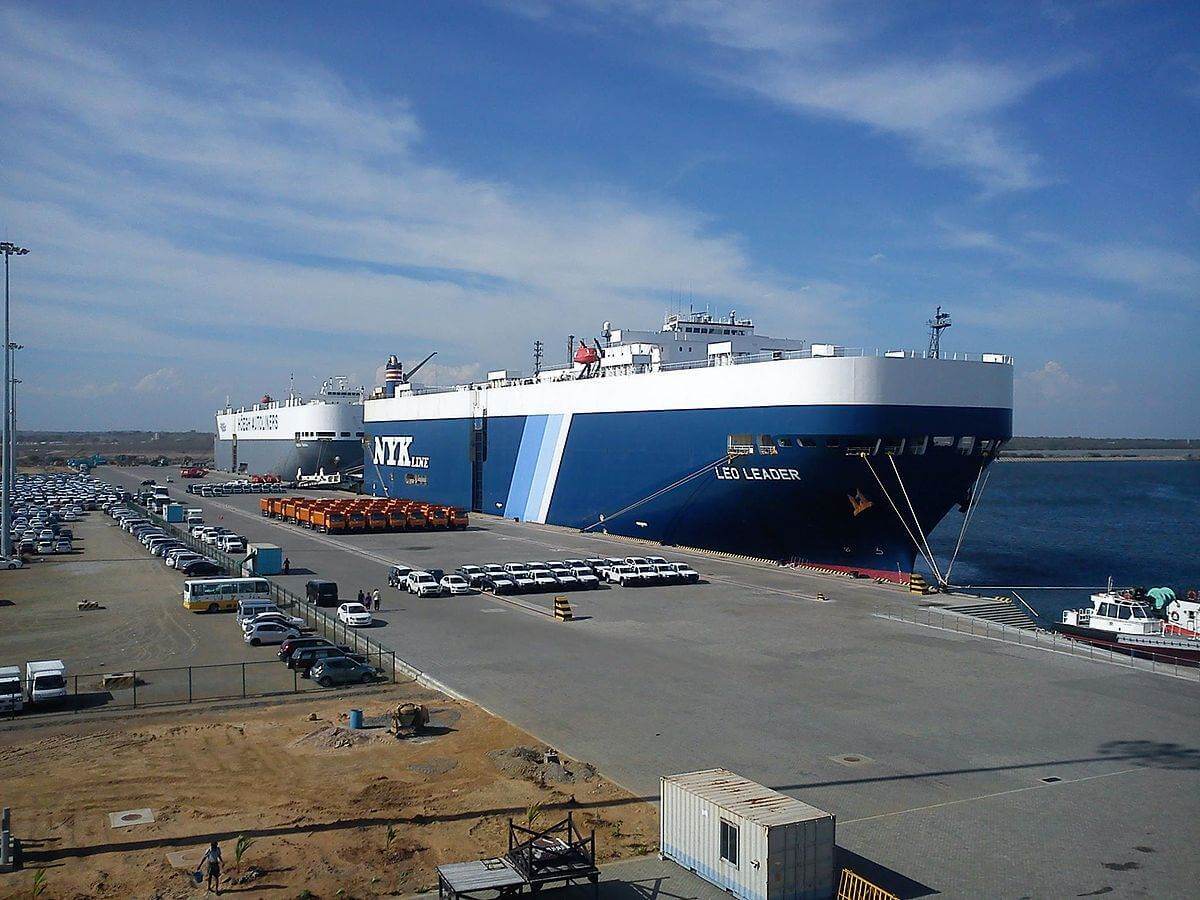On Tuesday, Sri Lankan authorities found nuclear material on a China-bound vessel at the Hambantota Port. According to officials, the vessel has been expelled, as it failed to secure prior permission for the “dangerous cargo”, which is mandated by the Sri Lankan Atomic Energy Act. This information was later confirmed by the spokesperson of the Sri Lankan Navy, Captain Indika de Silva. However, there has been no official comment from the Sri Lankan government.
The vessel was registered in Antigua and Barbuda and was travelling from Rotterdam, Netherlands to China. Citing a “mechanical emergency”, though, the vessel sought permission to dock at the China-run Hambantota Port but failed to declare that the cargo on the ship had Uranium hexafluoride, a radioactive material that is considered as “dangerous cargo” under Sri Lankan laws. This is primarily because it can be used to enrich Uranium, which can further be used to power nuclear facilities and make nuclear weapons. According to the Director-General of the Sri Lanka Atomic Energy Regulatory Council, while Uranium hexafluoride is often transported from one country to another, there is a need to obtain “prior permission” to berth at Sri Lankan ports. He added that the decision had been made following a consultation with the Ministry of Defence.
On Wednesday, Sajith Premadasa, the Leader of Opposition, brought the matter before the country’s Parliament. He informed the body that officials from the Navy had not been allowed to “board the vessel to carry out an inspection”. Insinuating pressure from China, he said that the Sri Lankan government continues to be pressurised by a “diplomatic mission” to bury the issue. However, he called upon the government to examine the issue, as it could potentially impact the lives of citizens of the country.
The Hambantota port has been the subject of criticism from several Western experts, who have argued China’s involvement in the port forms part of its “debt trap” politics. In 2017, Sri Lankan authorities, after being unable to repay a $1.4 million loan that it had acquired from China to construct the port, signed a 99-year lease with Beijing. This irked several Western countries, especially in light of the port’s strategic importance for shipping lanes in the Indian Ocean. Moreover, due to its geographical proximity to the Indian coastline, New Delhi has also raised concern about the Chinese presence there. However, Colombo has time and again reiterated that the port will only be used for commercial purposes and not military use.
Apart from external criticisms, the port has also been a subject of concern for many domestic players in Sri Lanka. Just last week, several petitions were filed before the country’s Supreme Court by civil society groups and labour unions to challenge the Colombo Port City Economic Commission Bill, which creates a special economic zone and effectively exempts the ports in Colombo, including the Hambantota Port, from following several Sri Lankan laws by creating a commission for registration, licenses, authorisations, and other approvals. However, the Sri Lankan government reiterated its stand that the bill does not affect Sri Lankan sovereignty in the region. Hence, the latest decision to expel the China-bound ship appears to be an attempt by Sri Lankan authorities to reaffirm their control over the Port City in Colombo and dismiss international and domestic criticisms about Chinese dominance.
Sri Lanka Expels China-Bound Vessel With Nuclear Material at Hambantota Port
Sri Lankan authorities reported that a vessel, registered in Antigua, that was docked at the Hambantota Port with radioactive material for China without prior permission has been expelled.
April 22, 2021

SOURCE: INDIAN EXPRESS
